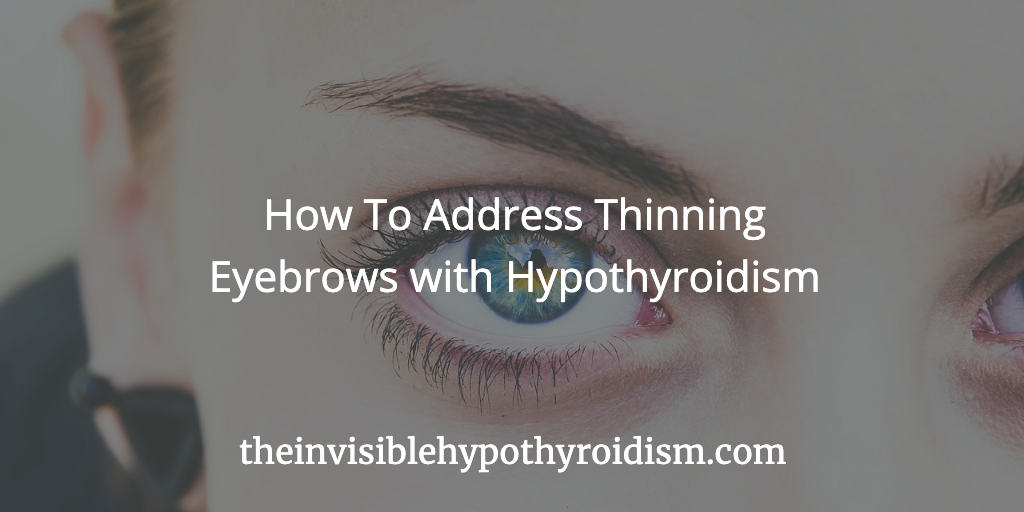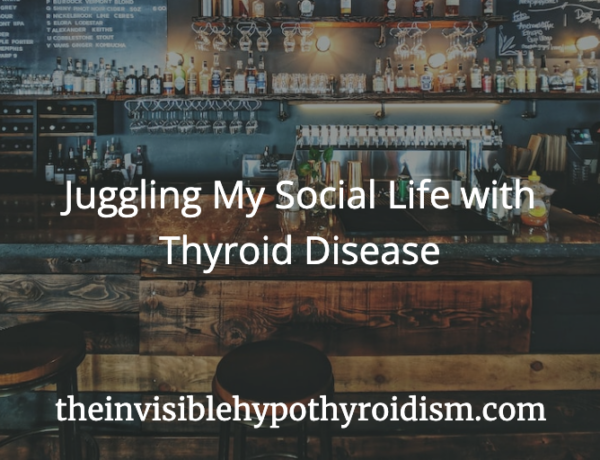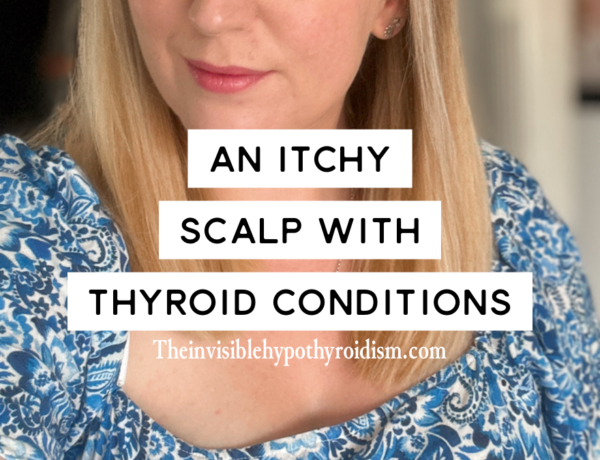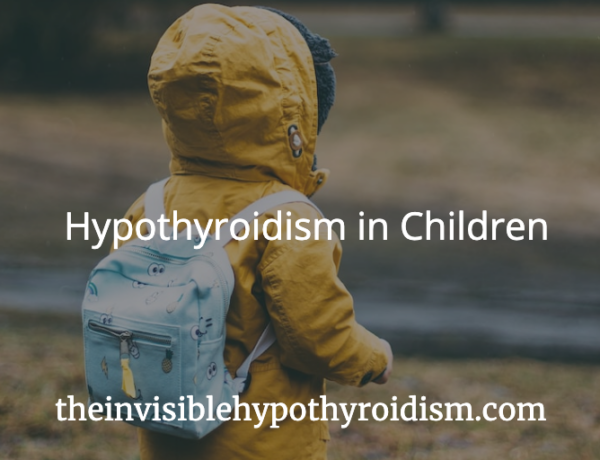Originally published on 20th November 2018 Last updated on 26th July 2024
Thinning eyebrows, especially of the outer third which is commonly seen in thyroid patients, can be frustrating and distressing. Many people take to investing in make-up or procedures such as micro-blading each and every year to ‘correct’ their eyebrow hair loss, but what if it could be down to your thyroid?
- August 2018
- October 2018
The above photos were taken in August 2018 and October 2018, just six weeks apart, but the eyebrow growth astounded me. After years of thyroid problems, over-plucking my eyebrows and assuming I’d never have naturally thick brows again, I was really surprised by the outcome in such a short space of time.
Within six weeks, I had gone from filling in my eyebrows with make-up daily, to doing absolutely nothing with them on a daily basis.
So how did I do it?
Optimal Thyroid Levels
First of all, I can’t stress optimal thyroid hormone levels enough. The main reason why so many thyroid patients still feel unwell despite being on thyroid medication is due to their levels not being optimal. Falling ‘in range’ or having ‘fine’ or ‘normal’ levels isn’t enough for some of us and we do much better with Free T3 and Free T4 sitting higher up in the range.
Put simply, when your doctor runs a test and you get the results, optimal levels are the results that most thyroid patients state they feel best at. This is a place within a given ‘range’. So it’s not just about falling in range that matters, but where in range you fall.
Please see information regarding optimal levels and studies here.
Thyroid antibody tests TpoAB and TgAB can also be very important. These tests tell you whether your hypothyroidism is autoimmune (which it is for around 90% of us) and often, lowering and keeping these antibodies as low as possible can help with thyroid symptoms and management of hypothyroidism too.
If your doctor won’t order the full thyroid panel, do know that it is relatively inexpensive and simple to order these tests yourself. UK thyroid patients can order from here and a US link can be seen here.
Stomach Acid
Low levels of stomach acid, commonly experienced among thyroid patients and especially those on T4-only medications, can contribute to hair loss. This is due to stomach acid aiding your ability to digest crucial nutrients and protein used in hair growth.
I take two tablespoons of apple cider vinegar in a glass of warm water and a digestive enzyme with each meal to aid digestion and stomach acid, helping me to absorb more of those important nutrients from food – on guidance from my functional medicine practitioner who determined I had low stomach acid. It can be a good idea to drink ACV through a straw, even when it is diluted, to protect your teeth.
Some people also find that adding a daily probiotic helps, as it can help to balance out the good and bad bacteria in the gut and exploring your gut health can help to improve not only hair growth but your overall health; including energy levels and skin complaints.
A UK test for Candida can be found here and a US test here.
Vitamins and Supplements
There are certain vitamins and supplements that can help with hair growth and preventing hair loss.
In my case, I’ve found that obtaining good iron levels is key, which is worth bearing in mind since low iron levels are another very common problem in those with hypothyroidism.
If your body isn’t getting enough iron from your diet, it will begin to pull ferritin from nonessential tissue such as hair bulbs, resulting in hair loss. So supplementation may help a lot.
However, it is important not to supplement in iron unless you definitely have a deficiency or low levels as it can be dangerous. You should also always take any iron containing medications or supplements at least four hours away from thyroid medication to avoid absorption being affected.
You can also explore zinc, selenium, B vitamins, A, C, D, E etc. which are all cited to help with healthy hair growth. However, always run a new supplement by your doctor!
Stress
I often stress about stress before there’s anything to even stress about. I’m not kidding!
Chronic stress is a well recognised contributor to hair loss and so it’s important to be aware of how your stress levels may be impacting your health. Exploring adrenal function and cortisol levels wouldn’t be a bad idea either as adrenal fatigue is seen in as many as 90% of those with Hashimoto’s and can contribute to a growing list of symptoms and complaints with hypothyroidism. [1]
If your doctor won’t check your adrenals, you can order testing yourself from here and here.
Castor Oil
I started off by massaging castor oil in to my brow area every night, although I quickly forgot and got out the habit after a few nights! So I don’t think I can attribute much of the hair growth to this oil. However, castor oil is an effective remedy due to its rich content of fatty acids, nutrients and minerals, so it helps to nourish and moisturise your hair follicles while the massaging action can encourage hair growth from dormant follicles.
***
Find Out What’s Causing Your Hair Loss
It is worth knowing that UK laboratory service Medichecks offer a Hair Loss blood test which checks many of the common causes for hair loss listed in this article.
Have you experienced thinning eyebrows with hypothyroidism?
See my past article on hair loss here.

Learn more about how to make the most of your health with hypothyroidism. The book Be Your Own Thyroid Advocate: When You’re Sick and Tired of Being Sick and Tired builds on this article in detail and explains how to thrive with thyroid disease.
References:
[1] https://thyroidpharmacist.com/articles/pregnancy-announcement/






